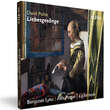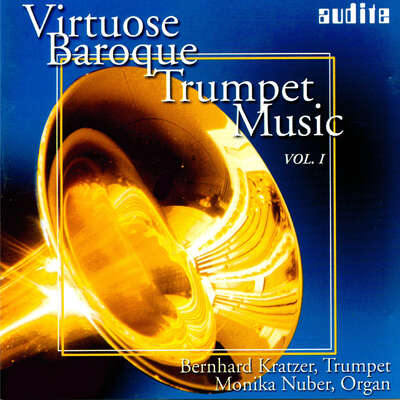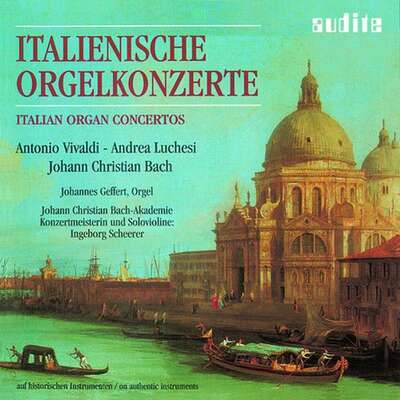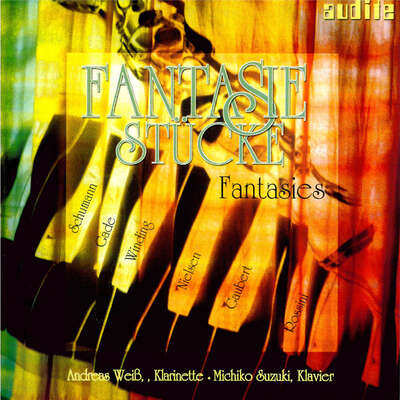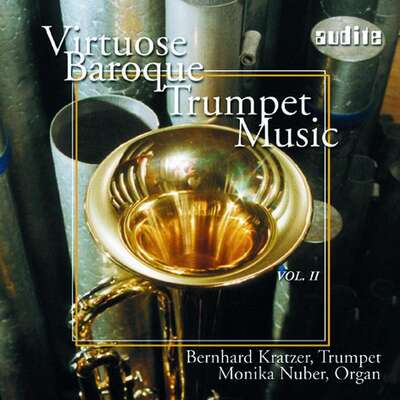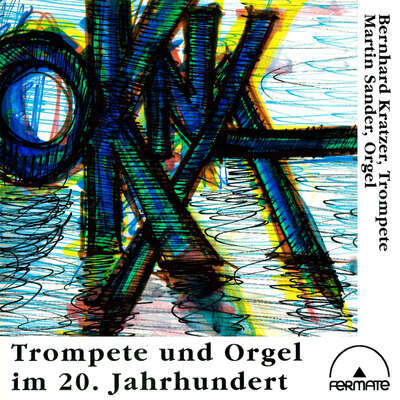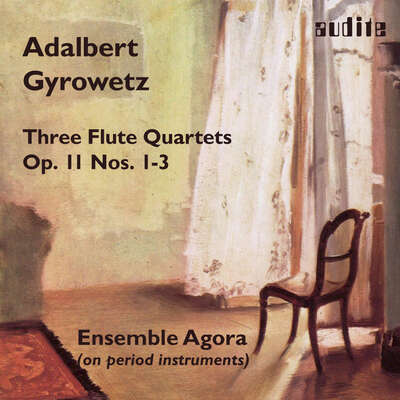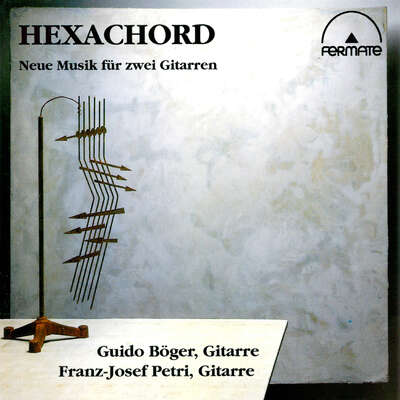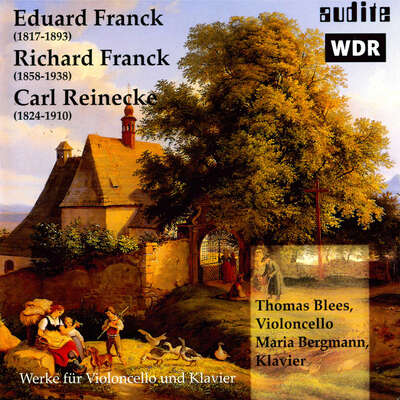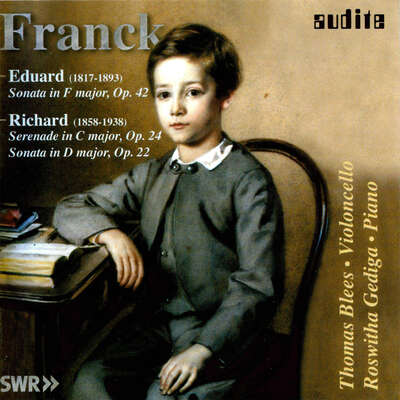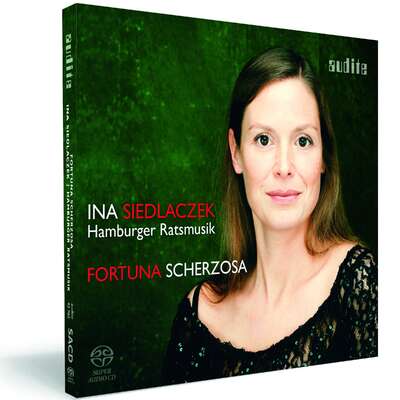
Pohle’s "Zwölf Liebesgesänge" expressively tell of love, loss and pain, of happiness, determination and abstinence. The composer asks for two equal voices, reflecting the autobiographical aspects within Paul Fleming’s texts. A discovery in exemplary interpretations.more
"An interesting, extraordinary, and beautiful baroque CD in all points, which one must know." (Pizzicato)
Track List
This bonus track is only available as a download!
Details
| David Pohle: Liebesgesänge | |
| article number: | 97.803 |
|---|---|
| EAN barcode: | 4022143978035 |
| price group: | BCA |
| release date: | 8. September 2023 |
| total time: | 69 min. |
Bonus Material
Informationen
David Pohle created his Zwölf Liebesgesänge in the early seventeenth century, crucially advancing the emerging genre of the German song. The settings of the 26-year-old Pohle are valuable testimonials to the development of this genre.
Reviews
Early Music Review | June 20, 2024 | Brian Clark | June 20, 2024 | source: https://earlymus...
While Pohle’s instrumental music is gaining popularity (partly through my own efforts to publish his surviving output, as well as his completeMehr lesen
Diapason | N° 731 MARS 2024 | Pucek Jean-Christophe | March 1, 2024
Probable élève de Schütz, David Pohle servit, entre autres, le landgrave Guillaume VI de Hesse-Kassel, auquel il dédia, en 1650, ses douzeMehr lesen
En dépit de quelques excès percussifs (« Anemone »), l'ensemble instrumental s'en tire mieux et la sonate de Krieger apparaît comme un havre. Son entrain ne parvient cependant pas à sauver cette réalisation du naufrage ; ces pages charmantes méritent un meilleur sort.
Das Opernglas | Jg. 44, Oktober 2023 | October 1, 2023
Das Stimmgold der beiden wunderbaren Countertenöre leuchtet in allen Gesängen in vielen, oft sehr feinen Varianten und bereitet ein optimales Hörvergnügen. Eine sensationelle Entdeckung!Mehr lesen
www.pizzicato.lu | 09/09/2023 | Alain Steffen & Guy Engels | September 9, 2023 | source: https://www.pizz... Betörend schöne Liebesgesänge
Kaum einer kennt noch den Komponisten und Kasseler Hofmusiker David Pohle (1624-1695), dessen Zwölf Liedgesänge nach Texten von Paul Fleming hier zuMehr lesen
Die Stimmen der beiden Countertenöre Benjamin Lyko und Alex Potter harmonisieren wunderbar miteinander, das Instrumentalensemble wird vom Cembalisten und Organisten Clemens Flick geleitet. Die Interpretation bleibt für historische Aufführungspraxis erstaunlich klassisch, was aber dem Hörvergnügen keineswegs schadet. Im Gegenteil, die Interpretation nimmt so den Hörer mit auf eine sichere Reise, bei der er dieses herrliche Werk ungestört entdecken und genießen kann.
In der Mitte des Zyklus‘ haben die Interpreten Johann Philipp Kriegers knapp sechsminutige Sonata Prima d-Moll op. 1/1 gesetzt, die ebenfalls mustergültig interpretiert wird. Eine in allen Punkten interessante, außergewöhnliche und schöne Barock-CD, die man unbedingt kennen muss.
English Translation:
Hardly anyone knows the composer and Kassel court musician David Pohle (1624-1695), whose Twelve Song Songs to texts by Paul Fleming are heard here. This work is interesting for several reasons and is notable for its unusual scoring. All the songs are arranged as duets for two equal voice parts and two obbligato violin parts. A detailed analysis of the works can be found in the booklet. The structure of the cycle alone is unusual for the time, and for us today it is also highly interesting that the two vocal soloists are two countertenors. Which of course gives the songs a special touch. In addition to the two violins, which, as already mentioned, play a leading role, there are alternately a cello, a lute or guitar, a recorder and percussion, as well as a harpsichord and organ. This instrumentation of the e.g.baroque ensemble allows the listener to participate in a truly outstanding sound and musical experience.
The voices of the two countertenors Benjamin Lyko and Alex Potter harmonize wonderfully with each other, the instrumental ensemble is led by harpsichordist and organist Clemens Flick. The interpretation remains surprisingly classical for historical performance practice, but this in no way detracts from the listening pleasure. On the contrary, the interpretation thus takes the listener on a safe journey, allowing him to discover and enjoy this magnificent work undisturbed.
In the middle of the cycle, the performers have placed Johann Philipp Krieger’s Sonata Prima in D minor op. 1/1, which lasts just under six minutes and is also interpreted in an exemplary manner. An interesting, extraordinary, and beautiful baroque CD in all points, which one must know.
(Rezension von Guy Engels) – Beim Thema Liebeslieder denkt man unverzüglich an das 19. Jahrhundert, an die großen Romantiker Schubert, Schumann oder Brahms. Geliebt und darüber geschrieben wurde allerdings zu jeder Zeit, so auch von Paul Fleming, dem bedeutenden Barocklyriker.
David Pohle, Hofkomponist in Kassel, hat zwölf autobiographische Liebesgedichte von Fleming vertont, die nun erstmals aufgezeichnet wurden.
Nichts ist so alt wie die Liebe, und so bleiben auch diese Texte modern, sprechen – wenn auch in einer heute fremden Bildsprache – die ewigen Themen an: Treue, Verrat, Freude, Trübsal, Verlust, Trauer. Die Sprache mag veraltet sein, der Vortrag ist es nicht. Die Authentizität, die Energie und Spannung mit der die beiden Solisten Benjamin Lyko und Alex Potter gemeinsam mit e.g.baroque die Texte gestalten, lässt uns an den unterschiedlichsten Emotionsstufen, die erwiderte und unerwiderte Liebe entwickelt, teilhaben. Die federnde Musikalität verleiht den Interpretationen die nötige Vitalität, ohne dabei die intimen Momente zu übertünchen. Sie wirken hingegen noch stärker als Kontrast.
Wer also einmal auf den romantischen Rosmarin verzichten möchte, dem können wir guten Gewissens z.B. David Pohles/Paul Flemings ‘Des kleinen Schützen heiße Bolzen…’ empfehlen.
English Translation:
When we think of love songs, we immediately think of the 19th century, of the great romantics Schubert, Schumann or Brahms. However, people have always loved and written about them, including Paul Fleming, the important baroque lyricist.
David Pohle, court composer in Kassel, has set twelve autobiographical love poems by Fleming to music, which have now been recorded for the first time.
Nothing is as old as love, and so these texts also remain modern, addressing – albeit in a figurative language foreign today – the eternal themes: Fidelity, betrayal, joy, gloom, loss, sorrow. The language may be outdated, the performance is not. The authenticity, energy and excitement with which soloists Benjamin Lyko and Alex Potter, together with e.g.baroque, create the texts allows us to participate in the various levels of emotion that reciprocated and unrequited love develops. The bouncy musicality gives the interpretations the necessary vitality without drowning out the intimate moments. On the contrary, they have an even stronger effect as a contrast.
So for those who would like to do without the romantic rosemary for once, we can recommend in good conscience, for example, David Pohles/Paul Fleming’s ‘Des kleinen Schützen heiße Bolzen…’.
concerti - Das Konzert- und Opernmagazin | 8. September 2023 | Sabine Näher | September 8, 2023 | source: https://www.conc... Verführerisch
[...] die bezaubernden Liebesgesänge von David Pohle nehmen den Hörer sogleich gefangen. Und die beiden Sänger Benjamin Lyko und Alex Potter gestalten mit verführerischer Raffinesse, farbig und ausdrucksvoll [...] Mehr lesen
Tech News Insight | September 8, 2023 | Elena Douglas | September 8, 2023 | source: https://technews...
Showrunners Alex Potter and Benjamin Lyko let Schütz student David Pohle’s love songs sound with sophistication.<br /> Equal-voiced duets are ratherMehr lesen
Equal-voiced duets are rather rare and have always had a certain exotic appeal. Love duets with two models are even rarer — and even more bizarre. But the enchanting love songs of David Buhle instantly captivate the listener. Singers Benjamin Lecco and Alex Potter create a seductive, colorful and expressive sophistication accompanied by an egbaroque ensemble (violins, violins, lutes, guitars, records, percussion, harpsichord, organ) under the direction of Clemens Flick. Born in 1624, Bohle was musically trained by Heinrich Schütz in Dresden and worked in Kassel, Schleswig, Weissenfels, Zietz, and finally in Merseburg, where he died in 1695. His sacred and secular vocal works are delivered only in manuscript form, many of which have been lost. So this CD is a real treasure!
Equal-voiced duets are rather
Neue Musikzeitung | Jg. 72, Nr. 09/2023 | Juan Martin Koch | September 1, 2023 | source: https://www.nmz....
Exquisites Repertoire
Vokales und quasi Vokales, vorgestellt von Juan Martin Koch
Exquisites Repertoire, zusammen mit dem agilen Ensemble e.g.baroque exquisit realisiert.Mehr lesen
L'éducation musicale | 28.07.2023 | Francis Benoît Cousté | July 28, 2023 | source: www.facebook.com...
Amour, bonheur, perte & douleur, détermination & abstinence constituent les éléments de cet extraordinaire cycle, réputé autobiographique.Mehr lesen
